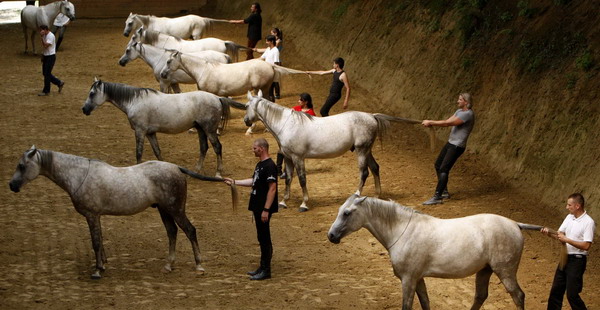City brings halt to illegal villas project
Updated: 2011-08-09 07:50
By Jin Zhu (China Daily)
|
|||||||||||
BEIJING - A city in Northeast China called a halt on Monday to the construction of illegal villas that occupy massive tracts of forestland in Heilongjiang province.
The project is taking place in a scenic spot a kilometer away from Suifenhe, a city in Heilongjiang province that borders Russia. The first phase of the project, to contain 81 villas, occupies 130,000 square meters, according to Economic Information Daily.
In the past 40 years, residents and border troops have planted trees on the land to conserve the soil and water there and improve the local environment. The construction of the villa project threatens to undo many of the gains that have resulted from that work.
|
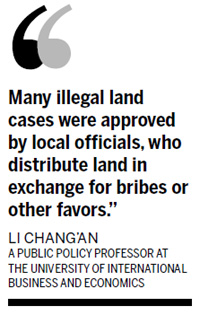 |
Economic Information Daily also reported that all of the plants in an 800,000-square-meter area of forestland have been dug up to make room for the villas. Clouds of dust have subsequently engulfed the construction site.
"Many of the trees are more than 40 years old," a local villager was anonymously quoted as saying. "My heart really ached when I saw them being removed."
Before the project was suspended, the frame structures of more than 10 villas had been completed and work was under way to lay the foundations for more villas, the report said.
"All of the villas have private yards and the largest villa covers 598 sq m," a salesman in the project was anonymously quoted as saying. "The average price is expected to reach 12,000 yuan ($1,866) per sq m."
Since 2003, the central government has told all levels of government that proposals to build new villa projects should not be approved and that more housing should instead be built for residents with low incomes.
Documents from Xindu Co Ltd, the owner of the villa project, show that the company obtained an approval from local authorities in July 2010 to build a project containing both commercial buildings and affordable apartments for local residents who then lived in shantytowns. No mention of villas was made in the description of the project.
On Monday, local authorities ordered the builders to suspend the construction and said the city government will start a special investigation, according to the information portal dbw.cn.
"It (the illegal villa project in Suifenhe city) is not a rare sight," Li Chang'an, a public policy professor at the Beijing-based University of International Business and Economics. "Many developers tend to use loopholes in the country's land management to build villas and earn more money."
In December 2010, illegally built villas were reported to exist in the special protection area of the Sun Yat-sen Mausoleum scenic spot in Nanjing, capital of East China's Jiangsu province. The developer of that project, according to the report, had not obtained an approval for the work from authorities.
Li encouraged the central government to supervise the use of local land. "Many illegal land cases were approved by local officials, who distribute land in exchange for bribes or other favors."
In the first half of the year, the country saw 30,000 cases of illegal land use, concerning the misuse of 18,500 hectares. That case number was up by 8 percent from what it had been in the same period in 2010, figures from the Ministry of Land and Resources show.
Hot Topics
Anti-Gay, Giant Panda, Subway, High Speed Train, Coal Mine, High Temperature, Rainstorm, Sino-US, Oil Spill, Zhu Min
Editor's Picks
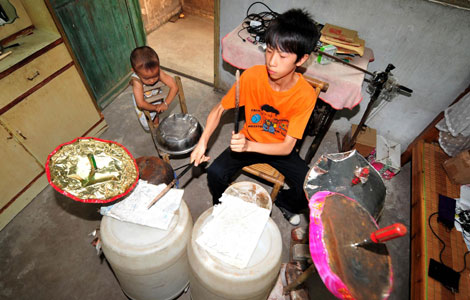
|

|
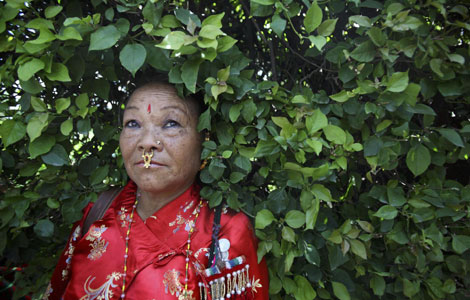
|
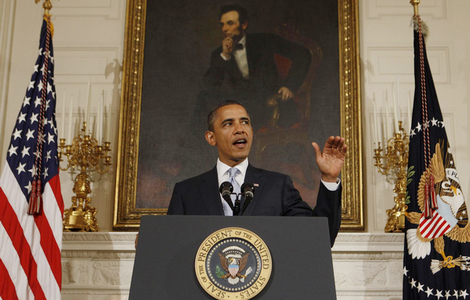
|

|

|





